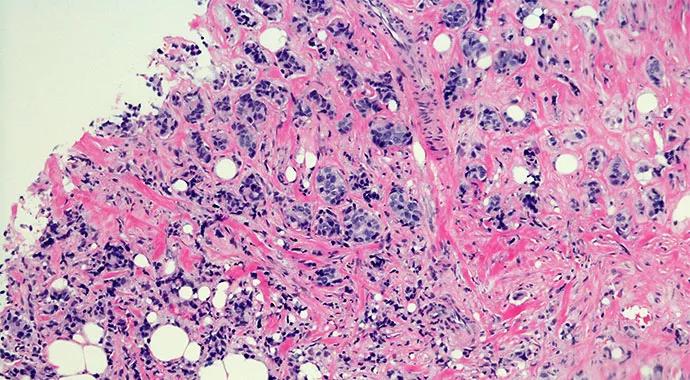Clinics designed for high-risk patients, young women

Image content: This image is available to view online.
View image online (https://assets.clevelandclinic.org/transform/2f9c914a-b419-47a2-b28f-bd8e055746c4/Breast-Cancer-690x380_jpg)
Breast-Cancer-690×380
Cleveland Clinic’s Comprehensive Breast Cancer Program offers highly personalized care for women with this common malignancy in two specialty clinics.
Advertisement
Cleveland Clinic is a non-profit academic medical center. Advertising on our site helps support our mission. We do not endorse non-Cleveland Clinic products or services. Policy
The statistic is startling: 96 percent of individuals who carry a genetic mutation for breast cancer do not realize they are at risk.
The Hereditary High-Risk Breast Cancer Clinic wants to change that by working with primary care physicians to identify, monitor and counsel such patients sooner.
“If we don’t identify high-risk families early, we can’t reach the women ‒ or men ‒ who may benefit from a proactive approach,” says Holly Pederson, MD, Director of Medical Breast Services.
It is crucial to expand the typical high-risk profile to include other key risk groups:
Dr. Pederson says high-risk patients should be evaluated even if they do not have breast changes such as a lump, pain or nipple discharge. If genetic testing reveals a mutation that raises their risk, they will be offered focused conversations on:
The Hereditary High-Risk Clinic’s genetic and breast specialists work closely with patients to develop a plan that integrates their wishes with their clinical profile.
Advertisement
In addition, men and women of childbearing age who know their carrier status may opt for preimplantation genetic diagnosis (PGD), utilizing in vitro fertilization to only implant embryos that don’t carry the gene mutation.
Even when the results of an evaluation in the clinic are negative, “that may be very reassuring to patients, who may still be candidates for enhanced surveillance or preventive medications,” says Dr. Pederson.
The new Young Women’s Breast Cancer Clinic coordinates the care and addresses the needs of newly diagnosed patients under age 50.
Breast cancer is relatively uncommon among women in their 20s, 30s and 40s but is more likely to be advanced, aggressive and caused by a genetic defect.
Young breast cancer patients may respond differently to treatment than older patients, and the disease impacts their lives differently. “Young women are juggling jobs, parenting and educational demands,” says oncologist Halle Moore, MD.
“They have complex diagnostic, therapeutic and support issues. A variety of treatment options are available. Timely consultations should help avoid treatment delays while still giving patients the time and information needed for individual decision-making.”
The clinic meets three times a week at our main campus to accelerate treatment, coordinate appointments and reduce return visits. It offers a broad array of services, including:
Advertisement
“From diagnosis to treatment to survivorship, young women with breast cancer need this coordinated, comprehensive approach,” says Jame Abraham, MD, Director of Medical Oncology.
Adds Stephen Grobmyer, MD, Director of Surgical Oncology, “Young patients need advanced medical and surgical care, along with a support system of mental health professionals, social workers and peers who understand the issues they face.”
Dr. Abraham and Dr. Grobmyer co-direct the Comprehensive Breast Cancer Program.
To refer patients to Cleveland Clinic’s Hereditary High-Risk Clinic, call 216.444.3052 or 800.223.2273, ext. 43052.
To refer patients to the Young Women’s Breast Cancer Clinic, call 855.REFER.123.
Advertisement
Advertisement
Key learnings from DESTINY trials
Are we ready for ‘observation’ of lesions found on core needle biopsy?
Research supports national guidelines for early-stage breast cancer
Researchers discuss new data on breast cancer treatment
CDX-011 shows promise for triple negative disease
Symposium presenters offer practice-changing updates
A well-prepared team meets the distinctive needs of patients at hereditary high risk
Use of tool can change recommendation to add or omit radiation